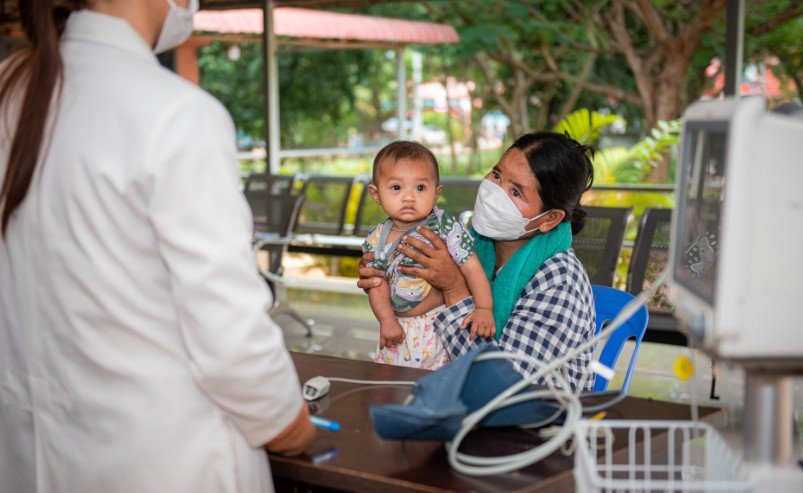Cambodia’s journey in improving maternal and child health stands as an inspiring example for other developing nations
Cambodia has made remarkable strides in maternal, newborn, and child health over the past two decades, achieving significant milestones in reducing mortality rates and improving healthcare access. The country continues to set ambitious targets to enhance the quality and reach of maternal and child health services, reaffirming its commitment to global health goals.
On February 21, Cambodia celebrated the National Day of Maternal, Newborn, and Child Health alongside World Health Day under the theme “Enhancement of Public-Private Partnership to Improve Quality of Maternal, Newborn, Child and Adolescent Health.” The event, chaired by Minister of Health Professor Chheang Ra, highlighted the government’s continued dedication to ensuring comprehensive maternal and child healthcare services for all Cambodians.
Ambitious Targets for Maternal and Child Health
Minister Chheang Ra outlined Cambodia’s ambitious goals, aiming to ensure that at least 90 percent of pregnant women receive a minimum of four health follow-up visits before delivery. Additionally, the country seeks to have at least 90 percent of all births attended by skilled health workers within healthcare facilities. Another critical target is to secure essential care for at least 80 percent of mothers and newborns during and after childbirth, as well as emergency maternity and neonatal care for at least 80 percent of pregnant women experiencing obstetric complications.
Public-private partnerships have been emphasized as a crucial factor in achieving these objectives. The minister called for enhanced collaboration between government agencies and private health service providers to share technical expertise and resources, ultimately strengthening Cambodia’s healthcare system.
Cambodia’s Achievements in Maternal and Child Health
Cambodia has already made significant progress toward its maternal and child health goals. Between 2014 and 2021–2022, newborn, infant, and under-five mortality rates declined dramatically, dropping to 8, 12, and 16 per 1,000 live births, respectively. With this achievement, Cambodia has successfully met the Sustainable Development Goal (SDG) 2030 targets related to preventing infant and child mortality.

The country has also witnessed a remarkable transformation in prenatal and maternal healthcare services. Nearly all pregnant women now receive prenatal care, with 99 percent receiving care from trained health professionals—up from just 30 percent in 2000. The percentage of births attended by skilled health professionals has also surged from 32 percent in 2000 to 99 percent in 2021–2022.

Future Directions
Despite these successes, Minister Chheang Ra urged all stakeholders to remain vigilant and proactive in further improving maternal and child health services. He emphasized the need for continued capacity-building among health professionals, strengthening the quality of care, and optimizing healthcare system efficiency to achieve greater results with lower costs.
The event was attended by senior representatives from the Cambodian Red Cross, various government bodies, and international development partners, including the World Health Organization (WHO), UNICEF, UNFPA, and FHI 360. Their collective presence underscored the global commitment to supporting Cambodia’s ongoing efforts in maternal and child health.
Cambodia’s journey in improving maternal and child health stands as an inspiring example for other developing nations. By reinforcing its healthcare policies, investing in public-private partnerships, and prioritizing accessibility and quality of care, the country is well-positioned to continue making strides toward a healthier future for all Cambodians.


